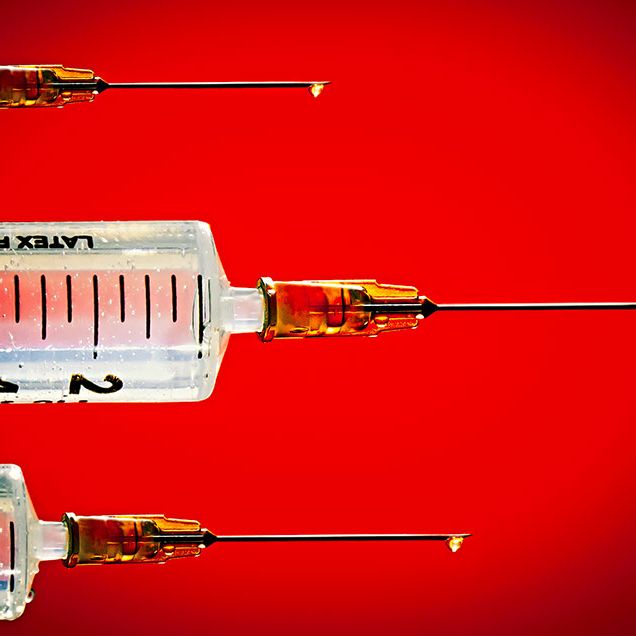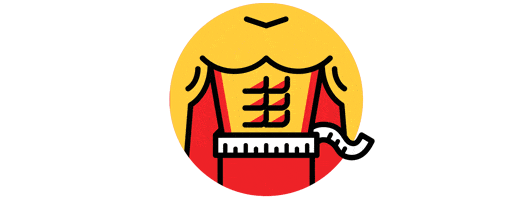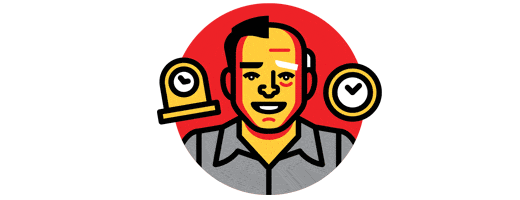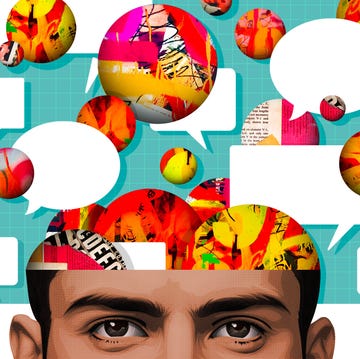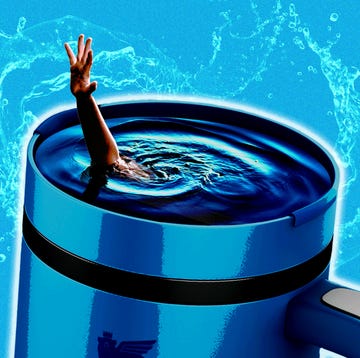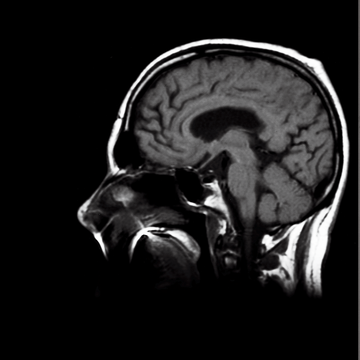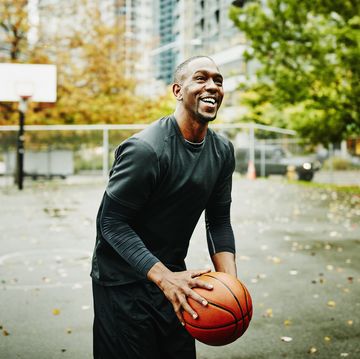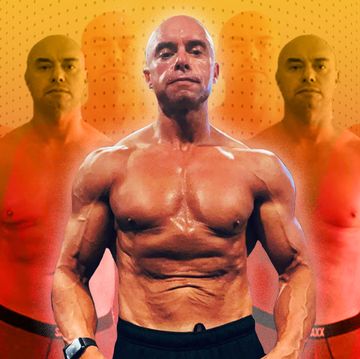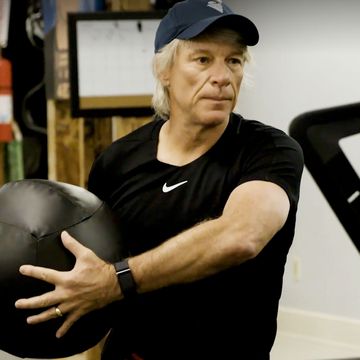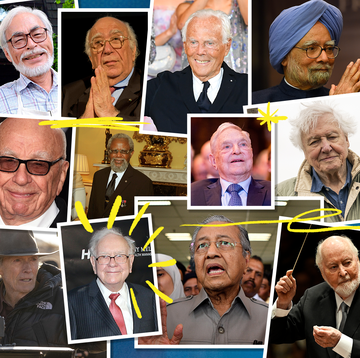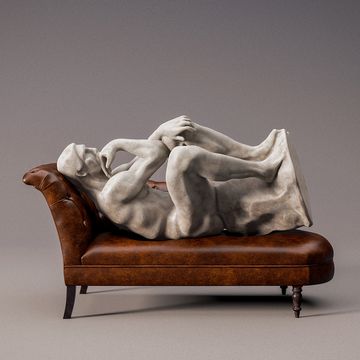When rumors swirled last December that Peyton Manning had taken human growth hormone to recover from injury, most guys had two thoughts:
- “Peyton, a cheater? Say it ain’t so!”
- “Damn, maybe I need to get some.”
Manning is just the latest star to face HGH doping allegations, joining men like Alex Rodriguez and Sylvester Stallone.
Apparently, plenty of athletes and celebrities are already true believers. Ten to 15 men on each NFL team now use the banned substance, one player told the Milwaukee Journal Sentinel, and a prominent Los Angeles trainer estimates that 20 percent of actors take it, according to The Hollywood Reporter.
While only 45,000 Americans have a legitimate need for HGH, according to recent data analyzed by the Associated Press, twice that many prescriptions were dispensed in 2013, and that’s not counting the HGH that changes hands without a scrip. (Here are 5 Ways to Naturally Boost Your HGH.)
Unfortunately, many of HGH’s purported benefits are unproven, and its reputation as dope for cheaters and snake oil for anti-aging hucksters keeps it from being studied more legitimately, says Randall Urban, M.D., an endocrinologist with the University of Texas Medical Branch. “The abuse gives negative connotations to a hormone that may have tremendous benefit for some people.”
Related: Lift Weights? Here’s What You Should Know About Taking BCAAs
These could include millions with brain damage and joint injuries.
To separate fact from fiction, we interviewed patients, doctors, and researchers to understand the benefits and promise of HGH. But let’s review what HGH is and what it does first.
Every night when you sleep, your pituitary gland, a kidney-bean-size gland at the base of your brain, goes to work, squirting out HGH, a polypeptide consisting of 191 amino acids.
HGH flows into your bloodstream and binds to specific cell-surface receptors found throughout your body, including your brain, where those receptors are especially dense in the regions responsible for learning and memory.
Related: Is Cardio Necessary For Super-Low Body Fat?
It also binds to fat cells, causing them to release part of their cargo, and stimulates your liver to produce a powerful hormone called insulin-like growth factor 1 (IGF-1), which promotes the growth of bone, cartilage, and muscle.
HGH surges during childhood and adolescence, but by the time you’re 40, you’re producing only about half as much as you were at 20.
Still, even that small amount is critical for body maintenance.
The FDA approved the use of recombinant HGH in 1985 for one thing: extreme deficiency, mostly among the 15,000 children at risk of being unusually short. It was later cleared for HIV/AIDS patients who suffer from muscle wasting, and for people with a condition known as short bowel syndrome.
Before 1985, HGH had to be painstakingly extracted from cadavers, a practice that was banned when researchers determined that it could transmit a brain illness similar to mad cow disease into patients.
Shortly afterward, two companies developed a limitless, contamination-free method of producing the drug that worked by inserting the coded gene for growth hormone production into bacteria, turning them into microscopic HGH factories.
In 1990, amid tension about sports doping, lawmakers voted for restrictions on HGH. At the time, endocrinologists feared that declaring it a controlled substance and lumping it in with steroids and narcotics would stigmatize the thousands of children who needed it.
Related: The 6 New Rules Of Bodybuilding
So Congress put unprecedented limits on prescriptions instead, making HGH the only drug that can’t be prescribed off-label. That’s why it’s arguably the most restricted legal drug in America. As is often the case with prohibition, the market moved underground and overseas.
So what can and can’t HGH do? Let’s look at the claims.
What Human Growth Hormone Can and Can’t Do
CLAIM: HGH Grows Muscle, Burns Fat
Most of his friends know Larry (we’re using only his first name to protect his privacy) as a professional in the New York financial industry. What they may not know is that he can leg-press 1,300 pounds 18 times.
A competitive bodybuilder since age 19, Larry began to pay the price for his heavy lifting when he turned 40, facing operations to repair knee and rotator cuff injuries. “Before that,” he says, “I was a completely natural athlete.”
Related: See the Dramatic Change In Bodybuilders’ Physiques Over the Past 125 Years
When Larry’s surgical recovery seemed to stagnate, a friend suggested he try steroids and growth hormone to speed things along. Access was not an issue.
“If you spend as much time in the gym world as I do, you pretty well know how to obtain it,” he says. Larry’s supply comes from a special relationship with a physician. People who can’t get prescription HGH often find a dealer who orders it from China.
Growth hormone is popular among athletes because “it is widely believed by illicit users that growth hormone works,” says Harrison Pope, M.D., a psychiatrist at Harvard Medical School.
“The problem is that growth hormone is almost always used in conjunction with anabolic steroids, and anabolic steroids clearly do work.” So it’s hard to know what portion of the muscle gain, if any, comes from growth hormone.
One Australian study parsed the issue and examined sprint performance in 96 cyclists who injected either HGH, testosterone, HGH plus testosterone, or a placebo (salt water) for eight weeks.
Compared with the placebo group, those taking HGH saw their sprint capacity improve by almost 4 percent; those taking HGH plus testosterone had an 8 percent improvement. The HGH-only group, however, saw no gains in muscle strength.
In truth, despite what’s on the Internet, HGH doesn’t build muscle in otherwise healthy adults the way testosterone would, says Michael Kjaer, M.D., Ph.D., a professor of sports medicine at the University of Copenhagen.
In one of the few studies of healthy volunteers, Dr. Kjaer gave men in their 20s injections of HGH and compared muscle growth to that of men who received a placebo. He found stimulation in connective tissues but not muscle.
Growth hormone does not appear to help older men either. As a 2013 University of Southern California medical school review on the matter concluded, “There is no compelling data that empiric treatment of older men with [HGH] improves muscle strength or performance.”
Now in his 50s, Larry has continued to use a steroid-hormone combination on and off since he started more than a decade ago. The steroids give him a muscle boost, while the growth hormone—typically 0.6 to 1.2 milligrams a day—burns extra fat, he says. Indeed, a variety of research reveals that HGH can be a potent burner of fat, especially stubborn visceral fat.
Larry is concerned about HGH side effects, particularly the link to increased cancer risk. He’s now more vigilant about doctor checkups.
Related: How to Tell If Someone Is Using Steriods
Among his gym crew, Larry says, HGH has a worse rep than steroids because there is so little research on it. “Guys joke that they won’t do HGH because they’re worried about growing three noses. It makes you think.”
VERDICT: No to muscle gains, yes to fat loss; but it is expensive.
CLAIM: HGH Speeds Injury Recovery
When Max Sittenfeld, an American anesthesiologist practicing in Costa Rica, began to develop tennis elbow, he turned to the usual remedies. Soon the 42-year-old was taking so many anti-inflammatory drugs his stomach ached.
“It was just terrible,” he says. “My quality of life, even in my job, went down because there was just this constant pain.”
He didn’t want surgery, so he turned to medical literature and started reading up on growth hormone. Costa Rica has fewer drug restrictions, so a doctor began growth hormone shots through the Anti Aging and Wellness Clinic in San Jose, gradually increasing the dose.
“After about two and a half months, I started noticing improvement in the pain in both my shoulder and my elbow. About four months in, I was completely recovered,” he says. “To this day, I haven’t relapsed into any tendinitis.”
The use of HGH for injury repair has long been a part of sports lore. Whether the tales are true or not, medical science is in need of better treatment for battered joints, says Christopher Mendias, Ph.D., a researcher in orthopedic surgery at the University of Michigan.
Related: The 5 Exercises Every Man Should Master
“With an ACL tear, you typically need about six months to a year between the time you have surgery and the time you actually go back on the field,” he says.
The difficulty isn’t so much the ligament itself, but the tissue that supports it. “If you look at the mechanics in terms of the strength of that new ligament that you put in, it’s pretty good,” he says.
“The problem is the muscle weakness that occurs after that surgery. By the time athletes are able to return to the field or court, the side that had the ACL tear is about 40 percent weaker.”
Mendias has just begun studies that involve administering 0.3 milligram of growth hormone directly into patients’ injured ACLs twice a day for six weeks in order to measure the effect on tendon and muscle strength.
The first participants are all men between ages 18 and 35 undergoing an ACL reconstruction.
His hypothesis, somewhat simplified, is that HGH will help preserve the muscle around the joint by activating IGF-1 that stimulates muscular growth while blocking another protein, myostatin, which is triggered by injury and curbs that growth.
The research is funded by the Mark Cuban Foundation, and the Dallas Mavericks owner has publicly stated that he thinks HGH should be legal to aid in joint repair.
Danish researchers are also looking into HGH as a treatment for patients with tendinopathy—long-term tendon pain.
Mendias has the measured optimism of a scientist; he says the research is still too sparse to draw conclusions.
Related: The Best Workout to Prevent Back Pain
Results won’t be released until 2017. Among his biggest concerns is that the possible side effects are still uncertain. It’s well known that too much growth hormone can lead to carpal tunnel syndrome (because it stimulates connective tissue).
Still other side effects may exist. But if his research turns out to be successful, it could usher in a new era of better, faster recovery from sports injuries.
VERDICT: The jury is out, awaiting more evidence.
CLAIM: HGH Delays Aging
Marvin Lagstein doesn’t want to live forever, but he does intend to dance at his daughter’s wedding. Since he’s 72 years old and she’s just 12, he could be 90 before the band starts playing.
So about five years ago, the New York City orthodontist walked into the office of Florence Comite, M.D., and asked her what he could do to stay in prime condition for the coming decades. He was already lifting weights three days a week and had completed 30 marathons.
Related: This Could Be the Earliest Sign Of Alzheimer’s—Years Before It’s Diagnozed By a Doctor
During Lagstein’s initial assessment, Dr. Comite, an endocrinologist, determined that his levels of IGF-1 and other hormones were low and that he wasn’t in the kind of shape he thought he was.
After almost a year of trying to boost his growth hormone naturally and taking testosterone, Lagstein started on a daily dose of about 0.3 milligram of growth hormone. (Dr. Comite was allowed to prescribe it because he was deficient. He’s now up to 0.7 milligram.)
Lagstein used to pay $1,500 a month for his HGH, but recently his health insurance agreed to cover the cost. He says he would continue to take it even if he still had to pay out of his pocket because “I’m way more youthful and healthy looking,” he says. Before he started, he adds, “I was tired a lot and had a lot of aches and pains.”
Dr. Comite knows her use of hormones is unorthodox—especially in the wider medical establishment, which is skeptical of growth hormone’s anti-aging claims.
Related: How to Hack Your Hormones So You Can Sleep Better, Gain Muscle, and Have More Sex
Her response is a criticism of the current disease-based health care system, which focuses on healing the sick rather than preserving the healthy. “I prefer to aim for optimal health for life,” she says.
How growth hormone fits into this picture is still a matter of debate. For one thing, Dr. Comite and many others don’t measure growth hormone directly but instead check IGF-1, which the liver produces in response to growth hormone. However, IGF-1 can be low for reasons other than growth hormone deficiency.
What’s more, it’s unclear whether giving growth hormone to someone within a normal range is beneficial over the long term.
A 2014 review in Clinical Interventions in Aging noted that while giving HGH to a deficient person does appear to have benefits, giving the hormone to an older person who’s experiencing a natural decline has “unclear pros and cons.”
One of the biggest cons is the risk of cancer. Since HGH promotes the growth of tissue throughout the body, fledgling tumors that may grow slowly or not at all could get a jumpstart into malignancy.
Metabolic complications may also happen. For example, when you exercise and metabolize fat for fuel, that’s healthy.
But when HGH melts fat, the sudden dump of glucose into your bloodstream can overwhelm the normal processes that clear it, leading to a risk of insulin resistance and diabetes. What’s more, there is no evidence that HGH will help you live longer.
If you’re worried that you’re deficient in growth hormone—only one in 50,000 people are, according to Danish scientists—talk to an endocrinologist about an HGH-stimulation test.
VERDICT: Not likely (but you may look younger).
CLAIM: HGH Heals Brain Injuries
A car sideswiped 42-year-old cyclist Jeff Dombrowski in 2009, the impact breaking his back and neck and snapping his left leg in three places—among other injuries. He struggled to recover over the next four years. His body eventually healed, but his mind remained wrecked.
“I was sleeping just two to three hours a night because of the pain and then the anxiety,” he says. He was bone-tired and so mentally sluggish that he strained to recall basic facts required for his job as a real-estate developer. Doctors offered little help.
Related: Why You Don’t Need to Take Fish Oil Supplements
After weeks of mining the Web, Dombrowski started to suspect that his symptoms arose from a lack of growth hormone.
Since he couldn’t get it legally, his only path was to enroll in a scientific trial. He found exactly one: Doctors at the University of Texas Medical Branch were testing whether growth hormone could relieve the physical and mental consequences of brain trauma. He got in.
Within weeks of starting HGH injections of 0.6 milligram, his sleep improved. More rest eased his pain. By mid-2014, he felt like himself again. He believes he’ll stay that way as long as he has his shots of HGH.
How did his injury affect his HGH levels? During head impact or whiplash, your brain can shift inside your skull. The pituitary gland isn’t part of the brain but sits at its base, connected to it by a tiny stalk.
“You can imagine that if the brain starts moving back and forth, it’s going to put stress on that stalk,” disturbing its output of HGH, says Charles Wilkinson, Ph.D., a professor of psychiatric neuroscience at the University of Washington School of Medicine.
Related: The 13 Best Foods For Your Brain
Some researchers also theorize that a concussion could trigger inflammation that damages the gland.
Wilkinson’s 2012 study examined 26 veterans who had sustained blast concussions—a problem for as many as 20 percent of returning vets—for hormone deficiencies.
The results were striking: Forty-two percent had an underactive pituitary, and of those, nearly half had low levels of IGF-1, a strong indicator of growth hormone deficiency.
Wilkinson suspects that hormone deficiencies could be the root cause for many common symptoms attributed to PTSD, including sleep disturbances, irritability, depression, and anxiety.
“These are mostly young men. What will happen to them if they are deficient in growth hormone for the next 40 years? Will they gain fat, lose muscle, and have cardiovascular disease, which is what we see in other growth hormone-deficient populations?” asks Jose Garcia, M.D., Ph.D., an endocrinologist with Baylor College of Medicine.
“It’s also an issue for people who play sports.” Dr. Garcia is trying to secure funding to study whether HGH replacement therapy can improve quality of life, memory, and other concerns among veterans with pituitary gland damage from concussions.
Preliminary research is promising. Data from the University of Texas Medical Branch (and Europe) supports the notion that restoring growth hormone to normal levels can improve lives, at least for some. If you’ve had a brain or head injury, says UTMB’s Dr. Urban, and develop profound fatigue and cognitive dysfunction, see a physician—and preferably also an endocrinologist.
VERDICT: Very promising.
